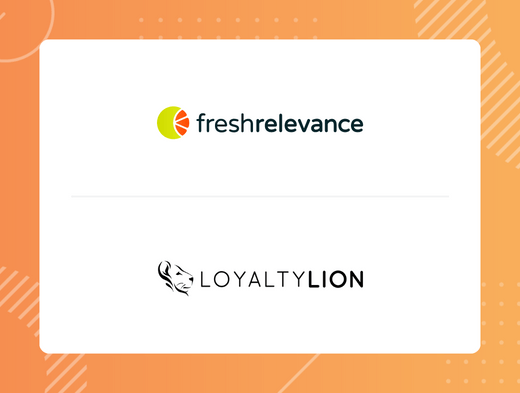The pandemic has rapidly accelerated eCommerce growth and this massive increase in market share is set to continue. With their online origins and strong focus on customer experience, DTC brands have been well placed to thrive during the mass shift from bricks to clicks.
Along with BigCommerce and Space 48, Fresh Relevance welcomed members of the eCommerce community for a morning of brunching and DTC discussions, hosted by Chloe Thomas, Founder of eCommerce Masterplan.
Our three panelists, Vicky Beech, Partnerships Manager at Fresh Relevance, Alex Defusto, Senior Enterprise Account Executive at BigCommerce and Ollie Lees, Head of Data & Insight at Space 48 shared their tips and tricks for creating and maintaining a loyal base of customers.
They also discussed the technology that helps DTCs thrive, looking specifically at open source eCommerce software versus SaaS solutions. Plus, they chatted about the rise of social commerce.
Since we can’t share the eggs on toast, you can snack on our key nuggets of wisdom from the brunch instead.
Read on for 3 key takeaways.
1) Segmentation and the three Cs of customer loyalty
It’s no secret that retaining existing customers is cheaper than acquiring new ones. And with tighter budgets and an ever-expanding pool of competitors, providing an outstanding customer experience has never been more important.
But the pandemic and the resulting shift to online shopping means consumer behavior has changed and habitual loyalty has been thrown out of the window. So it’s vital to listen to what your customers want and immerse yourself in customer data to provide an experience that will keep shoppers coming back to your site again and again.
Fresh Relevance’s three Cs of customer loyalty – convenience, communications and customer incentives – provide a useful framework for building a loyalty-boosting customer experience.
Convenience is key, as consumers want to sail smoothly through the customer journey and are unforgiving when it comes to frustrating online experiences. And when it comes to communication, it’s all about relevancy. Avoid alienating customers with irrelevant emails by personalizing communications based on contextual and customer data. Finally, incentivization is crucial, as customers expect something in return for their loyalty. Download the Fresh Relevance loyalty report to learn more.
The panelists also discussed segmentation as a key driver of loyalty. Loyalty and customer service has become much more than providing a voucher code. Instead, it’s about segmenting your customers and providing valuable content that’s right for each segment. Coming back to incentives, it’s key to segment loyal customers since there might be differences in the way certain loyal customers react to certain incentives.
2) Open source commerce and its alternatives
When it comes to choosing commerce vendors, retailers are often faced with the choice between open source or SaaS. Let’s take a look at the pros and cons of each.
Open source
Pros: It’s open by nature which means there is plenty of potential for customization.
Cons: The ability to code is a must, so it’s essential to have in-house capabilities.
SaaS
Pros: It’s simple and speedy which means retailers have the ability to go to market very quickly.
Cons: It’s typically built for speed, so it’s hard to customize.
Open SaaS
But the third commerce vendor option – open SaaS – offers a hybrid approach, bringing together the best of both worlds. Retailers can create an amazing front end experience for customers, without having to worry about back end implications and with the added benefit of speed.
The panelists highlighted that the large scale move towards open SaaS perhaps points to the fact that no one provider is right for everything anymore. Instead of the monolith commerce solution, retailers are taking a best-of-breed approach, enabling them to choose the best in each capability so that their eCommerce strategy is completely tailored to them.
3) The move towards social commerce
Social commerce is the ability for a retailer to sell their products within the native social media experience. Whilst this eCommerce trend is on the rise, retailers should consider whether this channel is suited to their offering and if so, whether they can execute advanced segmentation to ensure the right content is shown to the right audience. According to the panelists, segmentation and relevance are key when it comes to growing your brand through social marketing and commerce.
Final thoughts
The panelists left us with one final thought on how retailers can provide a successful DTC journey.
Alex urged retailers to ask what experience they want to provide their customers and consider which type of commerce vendor can help them achieve that experience.
Ollie stated the importance of understanding your customers through data and learning which tools suit your audience best, whether that’s new technology such as social commerce, or mainstays such as email abandonment. Embrace whatever works for your customers.
Vicky advised that since customer expectations are through the roof, it’s all about sending communications that customers want and expect and using the right channels.
A huge thanks to Chloe and our panelists for sharing their insights.
Learn more about our partners

Space 48
Space 48 is an award-winning eCommerce agency that works with global, forward-thinking retailers. It blends customer experienced focused solutions with unbeatable eCommerce technology to amplify the revenue companies can generate online. Space 48 is trusted by various platforms including BigCommerce, Magento, Shopify, Shopware and more, in order to deliver exceptional eCommerce experiences for consumers.

BigCommerce
BigCommerce is a leading software-as-a-service (SaaS) ecommerce platform that empowers merchants of all sizes to build, innovate and grow their businesses online. As a leading open SaaS solution, BigCommerce provides merchants sophisticated enterprise-grade functionality, customization and performance with simplicity and ease-of-use. Tens of thousands of B2B and B2C companies across 150 countries and numerous industries use BigCommerce to create beautiful, engaging online stores, including Ben & Jerry’s, Molton Brown, S.C. Johnson, Skullcandy, Sony and Vodafone.






